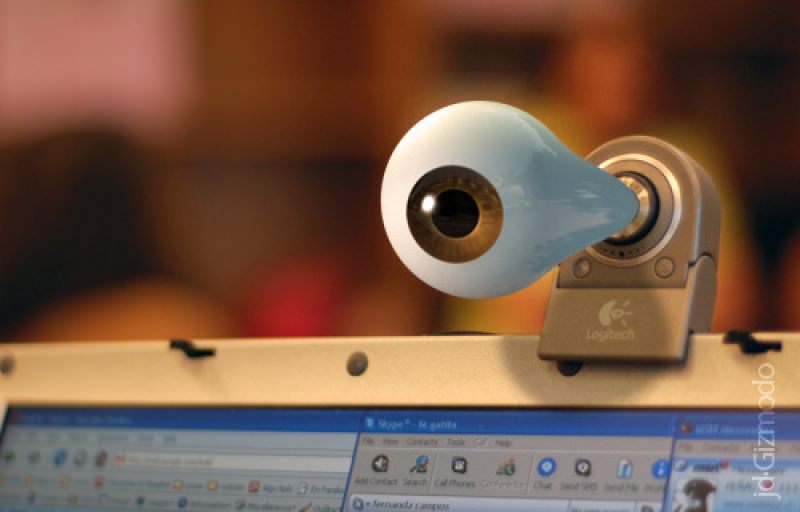Advantages of Webcams
Webcams evolved from being solely used for casual chatting to become essential business tools. They are now integrated in every laptop, smartphone and tablet making communication much more easier and interactive. These little peepers are not only great to stay in touch with family and friends, but they are strongly relied upon in overseas business conferences. Having a webcam enables you to create video content and make face-to-face communications instead of emails or phones, helping you to have more meaningful conversations and reduce the risk of misunderstandings. Moreover, webcams are cheap ways to boost your business. For instance, videos are 50 times more likely to appear in Google’s first page, therefore, promoting your business through videos will be much more effective and will help you grow. However, webcams also pose several security risks.
Risks of Webcams
The alarming security risks posed by webcams have become a hot topic recently. People have become more aware that webcams are gateways to hackers for spying on them. Whether it’s for pure entertainment or espionage, using webcams to spy on users is a rising security threat for the privacy-minded.
It was reported that ” Steven Fox, an IT security expert, was chatting with friends on his webcam one night when he started receiving some strange emails. Imagine his surprise when he opened one and found images of himself chatting.
His webcam had been hacked by a “script kiddie,” a person who uses malware written by someone else to show off their skills at accessing other computer systems, says Fox. He quickly detached the webcam, but he had to re-install his operating system after he found malware installed on his computer. “It was painful, but it was a learning experience,” says Fox, who writes a column for the journal of the Information Systems Security Association.”
Dan Tentler, a security researcher for Carbon Dynamics, suggests that the best and most effective way to evade hackers and prevent your webcam from spying on you is by using a VPN service.
How VPN can prevent your webcam from spying on you
If you ask any security professional, they will tell you that the best way to stay protected on the internet and prevent your system from getting hacked is by using a virtual private network, or simply referred to as VPN.
“VPN stands for ‘virtual private network,'” said David Gorodyansky, chief executive office of AnchorFree, a Mountain View, Calif., company that makes Hotspot Shield, VPN software for the average user. “It is a connection between a secure server and your computer, through which you can access the Internet.”
Imagine a VPN like a security alarm in your house that goes off when there is an intruder. This is how a VPN generally works. You probably know that hackers can spy on you or launch an attack on your system through your IP address, which gives away your location. A VPN encrypts your internet connection by concealing your real IP address, i.e, geographical location and replaces it with a fake IP address from an entirely different location selected from its network of servers. In this way, it will be impossible for hackers to trace your location and hack into your webcam. Even if they discover your VPN, you will be alerted with any suspicious activity. With a VPN, you can secure your web sessions, have unlimited access to all web content including blocked websites and services as well as carrying out financial transactions securely.
“People seem to be largely unaware of the risks of browsing the Internet unprotected, or mistakenly believe that their anti-virus [software] protects them while browsing,” Gorodyansky said. “We need to raise awareness of Internet security concerns, and make sure that people connect with a VPN, ensuring their protection.”
“Client VPNs allow individual users to connect to a central location via their mobile device or computer,” Cole said. “Once authenticated, they then have access to the main location’s infrastructure. Remote offices use VPN so that they connect to their main location securely by encrypting all the traffic through a VPN tunnel.”
And they’re not just for laptops anymore! VPN clients can be installed on all hand devices, like: smartphones, iPads and tablets and gaming consoles, too. This is because the majority of user spend more time on the internet from their hand devices and less from their PCs or laptops. In addition, VPNs are user-friendly softwares that don’t require complex installation process.
“Connecting to a VPN concentrator with a client VPN is usually done with a username/password, a security certificate, or two-factor authentication like a token and username/password,” Cole said. “Connecting VPN clients depends on how the authentication is setup on the VPN concentrator.”


